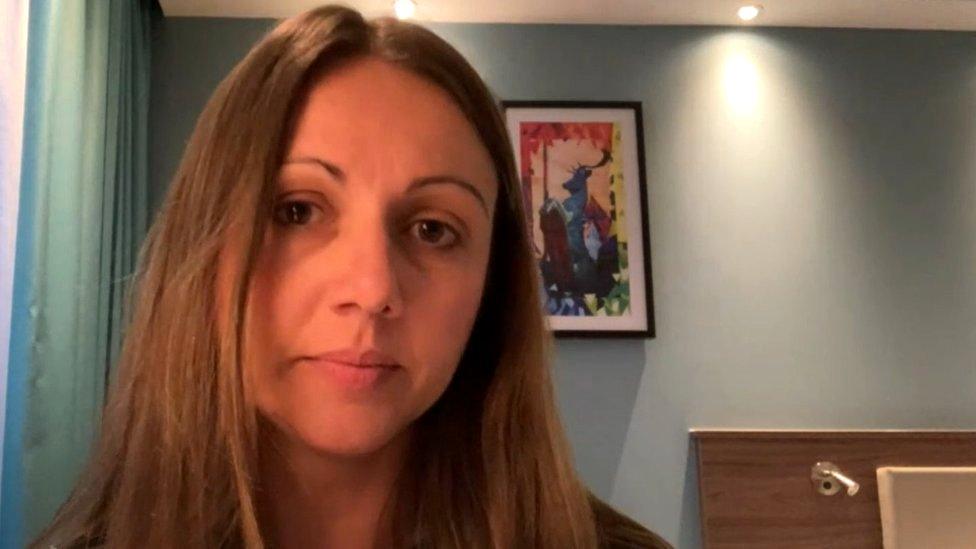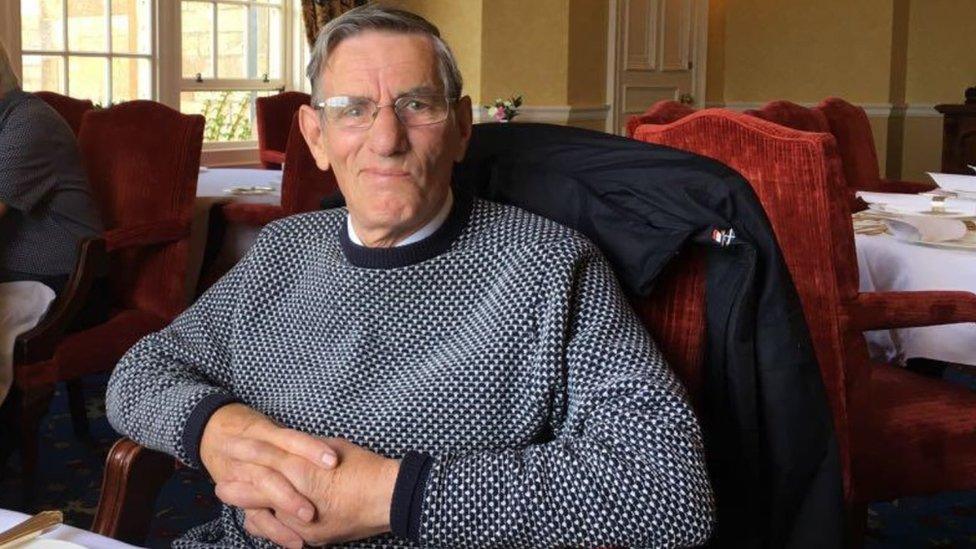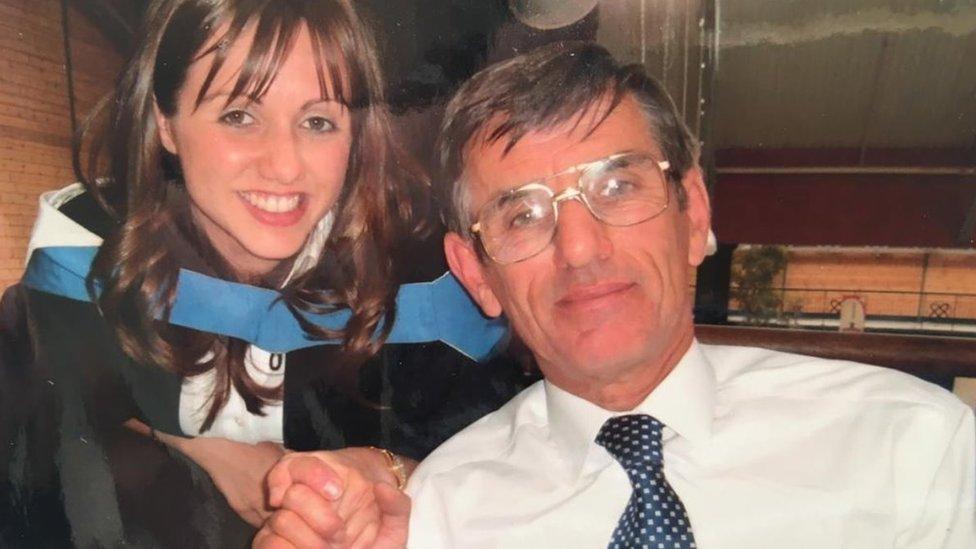Covid in Scotland: End-of-life visitors 'need quarantine support'
- Published

Claire Herriot is in quarantine in an Edinburgh hotel after flying to Scotland from Istanbul
A woman who travelled from Turkey to see her dying father no longer has to quarantine in a hotel after criticising the lack of mental health support.
Claire Herriot, from Glasgow, flew home to visit him in hospital after being advised she would be allowed a one-off compassionate visit.
She said being kept in a hotel was adding to the trauma of saying goodbye.
On Friday the deputy chief medical officer allowed her to leave after ruling her case was "exceptional".
Ms Herriot, who was vaccinated in the US, tweeted, external: "GREAT NEWS! I am no longer required to quarantine at the hotel. Thank you to everyone who covered the story, to everyone who's been in touch to support and to @scotgov for the decision. I'll be isolating at home, testing on day 8 and visiting my dad. Peace and love. Claire x"
Earlier, Ms Herriot, who was fully vaccinated in the US, was told she could have two further visits to her father if she continued to test negative for Covid.
Gordon Herriot, 75, has multiple organ failure and is being treated at the Queen Elizabeth University Hospital in Glasgow - an hour's drive away from the Edinburgh hotel where she was in managed isolation.
Ms Herriot, 39, started working in Istanbul for Turkish TV station TRT World at the end of June.
Turkey has been designated by the Scottish and UK governments as a red-list country for international travel.
It means anyone returning - regardless of their vaccination status - must self-isolate for 10 days in a government-approved quarantine hotel.
Visits to see relatives receiving end-of-life care were made exempt from travel restrictions - but only if self-isolation protocols had been safely completed.
Her case follows that of Laura Soutar who earlier this month was delayed from seeing her father Iain Soutar, from Milngavie, while he was receiving palliative care for terminal cancer.

Gordon Herriot is in hospital in Glasgow with multiple organ failure
Ms Herriot said she was only able to navigate the system because of her experience and contacts as a TV producer, previously for Sky News and ITN, which is an option not available to most people.
"I think it has been made very difficult, and harder than it needs to be," she said. "It took me a protracted exchange of email and phone calls over several days to get that which I am entitled to already, which was a compassionate visit.
"I applied, meeting the threshold for an end-of-life visit, and that application was swiftly denied and I had to go though an unnecessarily long and drawn out process."
In an official complaint, external, she has questioned why, if she was entitled to have three compassionate visits after negative Covid tests, she has had to go through so many requests and appeals to receive them.
"It is as if the system is designed to test people's mental health," she told BBC Radio's Good Morning Scotland programme.
Ms Herriot said she had not been eating or sleeping during her hotel stay because of the distress of knowing her father was dying.
"We're very close, we even share a birthday," she said.
She will now complete her isolation with her mother and 37-year-old brother, who recently returned from Spain to say goodbye to their father.
"It's not just me. We are beyond emergency [Covid] measures now and each individual case, mine and everybody else's, should be assessed on its merits," she said.

Claire Herriot and her father are very close and share a birthday
In the first three days of her quarantine, she tried to get her mental health assessed and have her quarantine requirement relaxed.
"There is a document in this hotel which says if you have concerns about being in the facility for your own well-being, you can seek an assessment from a medical profession after check-in," Ms Herriot said. "Well, I've tried - there is no medical professional in this building."
The document states: "A mental health emergency should be taken as seriously as a physical emergency. If you need help for a mental health crisis, emergency or breakdown, please seek immediate advice and assessment."
She called 111, the NHS Scotland health line, and was told to call the Covid helpline, who referred her back to 111.
"This is a terrible situation in a global pandemic, but I believe there is so much additional suffering and additional trauma," she said. "That is what I am really struggling to understand."
'Exceptional case'
A Scottish government spokesman said: "The decision to allow Ms Herriot to leave managed isolation was taken following very close consideration of the exceptional case by Scotland's deputy chief medical officer.
"Ms Herriot can now be clinically assessed and treated as required and will be able to visit her father as often as can be accommodated by the hospital. She will however, be required to self-isolate at home and complete a further PCR test.
"Managed isolation is necessary to limit the importation of the virus and variants of concern and remains a requirement for all passengers arriving from or having travelled through a red list country.
"Our thoughts remain with Ms Herriot and her family during what must be a very difficult time."

